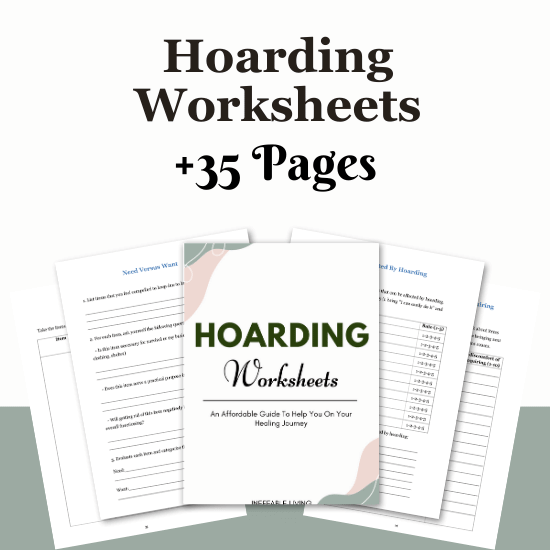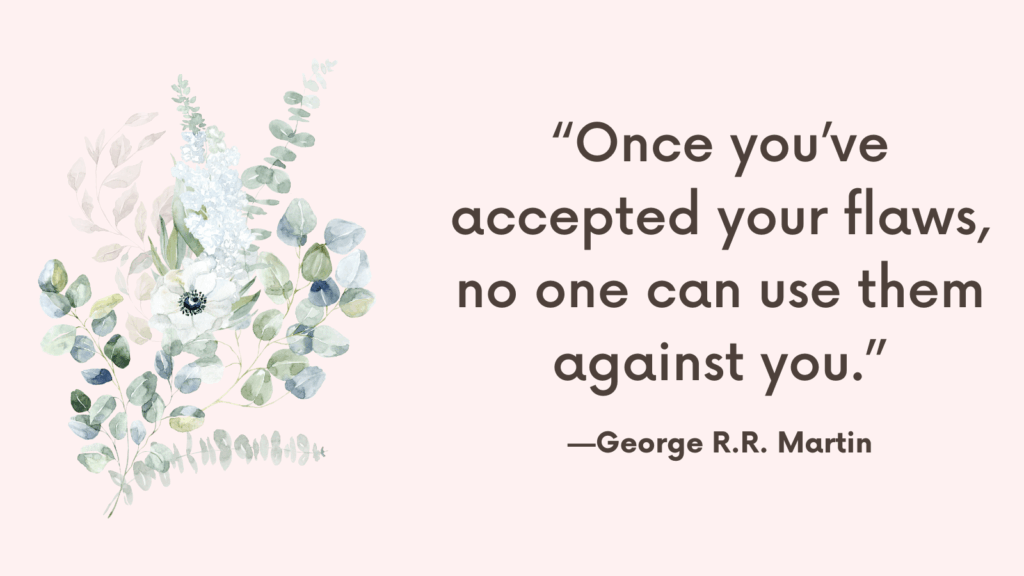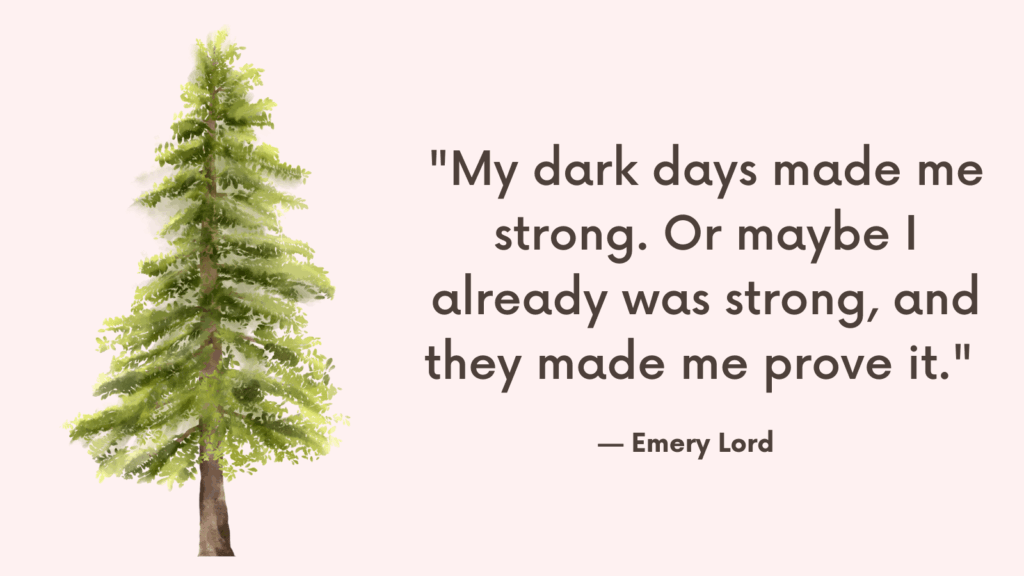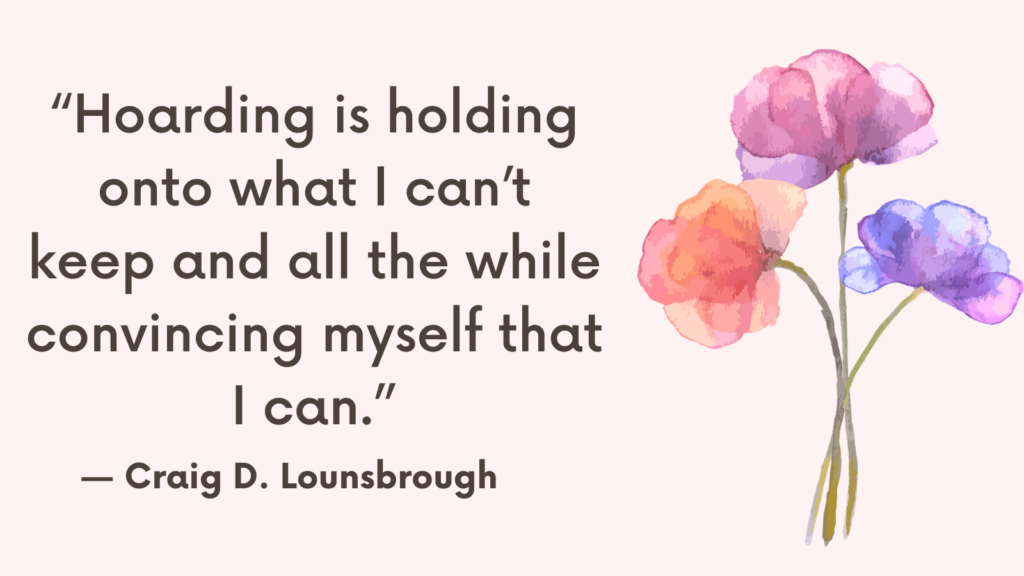Letting go of items when you live with hoarding tendencies is rarely just a physical task—it’s an emotional release. And even if the decluttering was intentional, afterward you may feel a wave of grief, anxiety, regret, or even guilt. These emotions are normal, not signs of failure. Here’s how to gently care for your mental and emotional well-being after a decluttering session.
Why Decluttering Can Trigger Unexpected Grief
Each Item Feels Personal
In hoarding, objects are rarely just “stuff.” They are often tied to identity, memory, safety, or unfulfilled hopes. Letting go of an item can feel like letting go of a relationship, a dream, or a part of one’s past. The grief isn’t about the object — it’s about what it represents.
It Can Feel Like Losing Control
Decluttering involves making countless small decisions — each one demanding energy, emotional regulation, and clarity. For someone whose hoarding is linked to trauma, anxiety, or depression, each decision can feel overwhelming. Grief may arise from the sense of being pushed into change before feeling ready or safe.
It Forces Confrontation With the Past
Objects often hold unspoken stories: the clothes never worn, the unread books, the gifts from people who are no longer in your life. Sorting through these items means confronting loss, failure, regret, or missed opportunities. This emotional confrontation can trigger deep sadness — not just about the items, but about life itself.
It Highlights Isolation and Loneliness
Letting go of things that once brought comfort can leave behind emotional emptiness. The items may have served as companions, distractions, or symbols of a life once imagined. Grief can arise from the sudden awareness of how much connection, time, or joy has been lost.
Related: 6 Common Types of Hoarding
How to Cope With the Emotional Aftermath of Decluttering When You Struggle With Hoarding?
1. Acknowledge That Big Emotions Are Normal
Sadness, panic, or even anger may rise after letting go of things. This doesn’t mean you made the wrong decision—it means your nervous system is adjusting. Say to yourself: “It’s okay to feel this. It doesn’t mean I did something wrong.”
2. Pause and Breathe—Don’t Rush to “Fix” the Feeling
The urge to undo the progress, reclaim items, or re-fill the space is a reaction to discomfort. Sit with the feeling first. Breathe deeply. Remind yourself: “The discomfort will pass—I don’t need to act on it right now.”
3. Ground Yourself in the Present Moment
After decluttering, you may feel untethered. Try grounding techniques like:
- Touching a comforting object
- Naming five things you can see
- Sitting with a warm drink or blanket
These small acts help reconnect you to the safety of the now.
4. Journal What You’re Feeling—Without Filtering
Write freely:
- “What emotions are coming up right now?”
- “What am I afraid of losing?”
- “What would I tell a friend feeling this way?”
Letting your mind speak without judgment is an act of emotional regulation.
5. Create a “Comfort Ritual” After Decluttering
Make it a habit to follow any letting-go session with something emotionally nourishing:
- Watch a favorite show
- Light a candle
- Listen to calming music
This helps your brain associate decluttering with safety—not threat.
Related: 8 Stages of Hoarding
6. Avoid Revisiting the Items You Let Go
It’s tempting to mentally review or second-guess decisions. Instead, gently redirect your thoughts with affirmations like:
“I made the best choice I could with what I knew.”
“Letting go makes room for peace.”
7. Talk to Someone Who Understands
Reach out to a therapist, friend, or support group familiar with hoarding struggles. You don’t need advice—just a space to feel heard and held in your emotions.
8. Notice the Gains, Not Just the Loss
After the grief, reflect on what you’ve created:
- A clearer space
- A moment of control
- A step toward safety
Even if it’s small, name the win. You did something hard—and that matters.
9. Give Yourself Permission to Rest
Decluttering is emotionally and physically exhausting. Don’t expect yourself to “bounce back.” Allow naps, quiet time, or doing nothing. Recovery is part of the process.
10. Affirm Your Worth Beyond What You Own
Repeat to yourself:
“I am not defined by my things.”
“I am still whole, even as I let go.”
This truth is the foundation of healing from hoarding behaviors.
Related: What Causes OCD to Flare Up? Top 10 Causes

Conclusion
The emotional aftermath of decluttering is real—but it’s also temporary. What lasts is the strength you showed by making the choice to let go. Be gentle with yourself. Let the space you created become not just empty—but peaceful. You’re not just clearing a room—you’re reclaiming your life, piece by piece.



